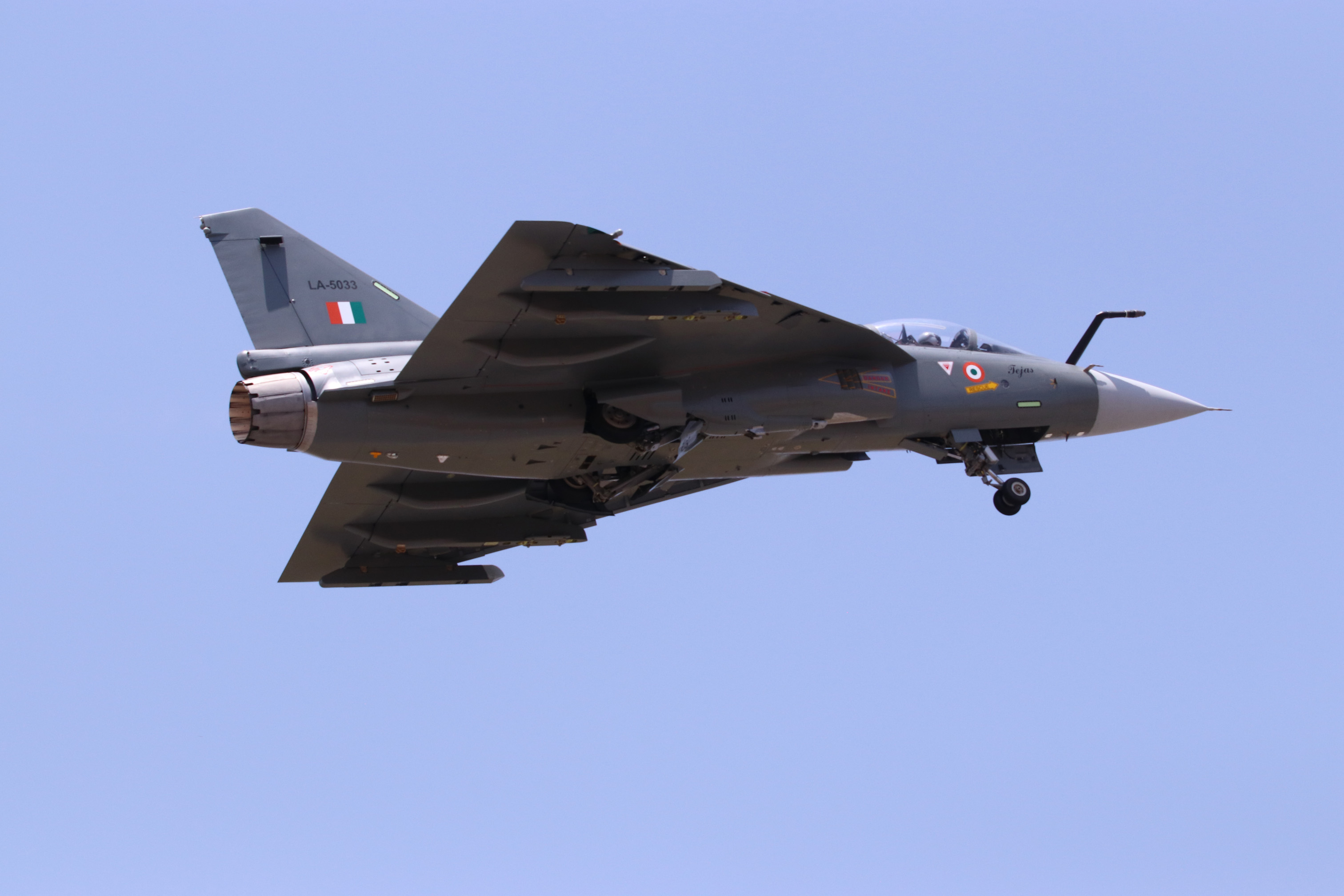SOURCE: AFI


Hindustan Aeronautics Limited (HAL) is setting an ambitious goal to ramp up production of the Tejas Mk1A fighter jet to 30 aircraft per year by 2027, a move that underscores India’s drive toward self-reliance in defence manufacturing under the “Make in India” initiative. In a recent statement on February 18, 2025, HAL Chairman DK Sunil revealed that the company has placed orders with private sector firms to supply assembled fuselages, complete with internal components, to reduce assembly time at the final assembly line.
A key component of HAL’s strategy is outsourcing the production of assembled fuselages to private sector firms. Traditionally, HAL has handled the manufacture of major aircraft components, such as the front, centre, and rear fuselages, as well as wings, internally or through a network of over 270 Micro, Small, and Medium Enterprises (MSMEs). However, to accelerate production and reduce bottlenecks at the final assembly line, HAL has now placed orders with private companies to deliver fuselages that come pre-assembled with internal components. This approach minimizes the time and labor required during final assembly, allowing HAL to focus on integrating avionics, weapons, and engines more efficiently.
Posts on X and industry reports suggest that companies like Dynamatic Technologies, Tata Advanced Materials Ltd., and L&T are among those likely to be involved, given their existing roles in the Tejas supply chain. By receiving fuselages that are already fitted with structural internals, HAL can shave weeks or even months off the assembly process, enabling faster rollout of completed aircraft. This modular approach also aligns with global aerospace trends, where major manufacturers like Lockheed Martin and Boeing rely on tiered suppliers to handle sub-assemblies, ensuring scalability and flexibility.
The decision to order pre-assembled fuselages with internals is a direct response to the need to shorten the final assembly line (FAL) timeline, which has been a bottleneck in HAL’s production process. The Tejas Mk1A requires meticulous integration of advanced systems, including the ELTA ELM-2052 AESA radar, electronic warfare suites, and weapon systems like the Astra Mk1 and ASRAAM missiles. Any delay in assembling these components can push back delivery schedules, as seen with the recent postponement of the first Mk1A delivery from February 2024 to November 2024 due to engine supply issues and developmental challenges.
By shifting some of the preliminary assembly work to private partners, HAL can focus its resources on high-value tasks, such as flight testing, quality assurance, and certification. This strategy also reduces the risk of production halts caused by supply chain disruptions, such as the ongoing delays in GE F404 engine deliveries. According to DK Sunil, once the fuselage supply chain stabilizes, HAL expects to achieve the 30-jets-per-year target, ensuring that the IAF receives its aircraft on an accelerated timeline.
While the target of 30 jets per year by 2027 is ambitious, it is not without challenges. Engine supply remains a critical concern, with GE Aerospace struggling to meet demand due to global supply chain issues. Posts on X and news reports indicate that HAL has three Tejas Mk1A aircraft ready in the flight line, with five more and four trainers expected by March-April 2025, but engine deliveries are crucial to finalize these aircraft. DK Sunil’s confidence that GE will resume supplies from March 2025 suggests that HAL is banking on this timeline to meet its goals.
Another challenge is ensuring that private sector partners can scale up their own production capabilities to match HAL’s needs. The current network of suppliers, while robust, must invest in new machinery, training, and quality control to deliver complex assemblies like fuselages on time and to specification. However, this also presents an opportunity for India’s defence ecosystem to grow, creating jobs, fostering innovation, and reducing reliance on foreign suppliers.
NOTE: AFI is a proud outsourced content creator partner of IDRW.ORG. All content created by AFI is the sole property of AFI and is protected by copyright. AFI takes copyright infringement seriously and will pursue all legal options available to protect its content.